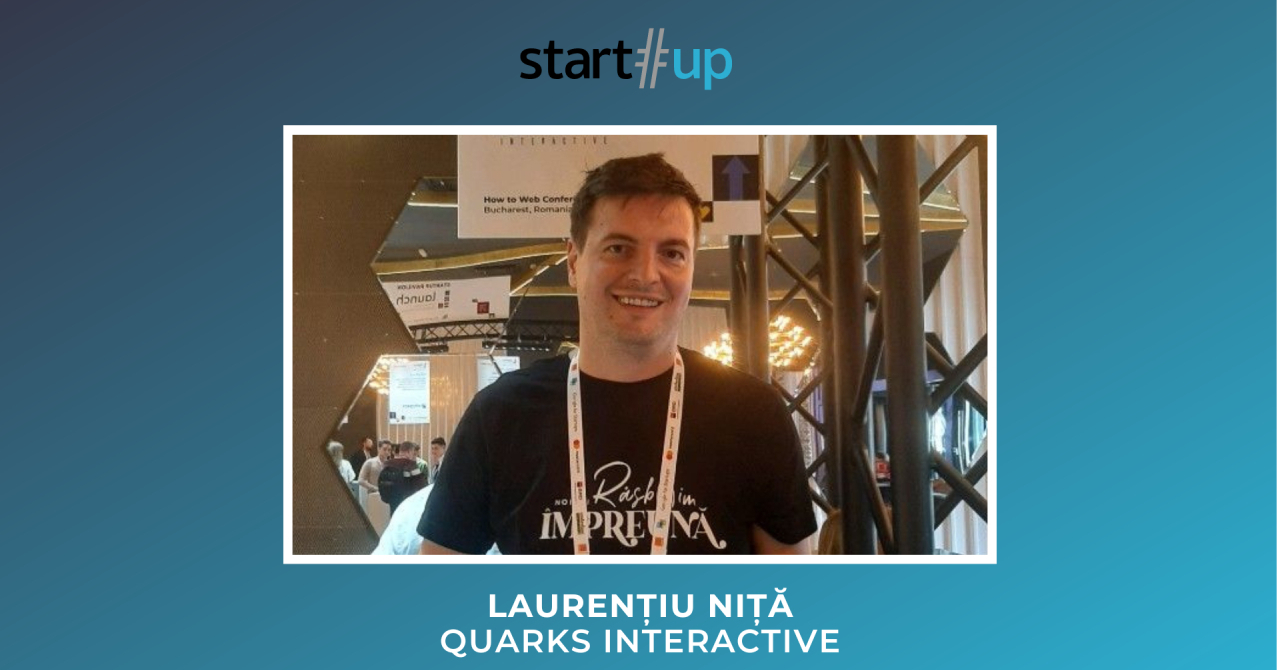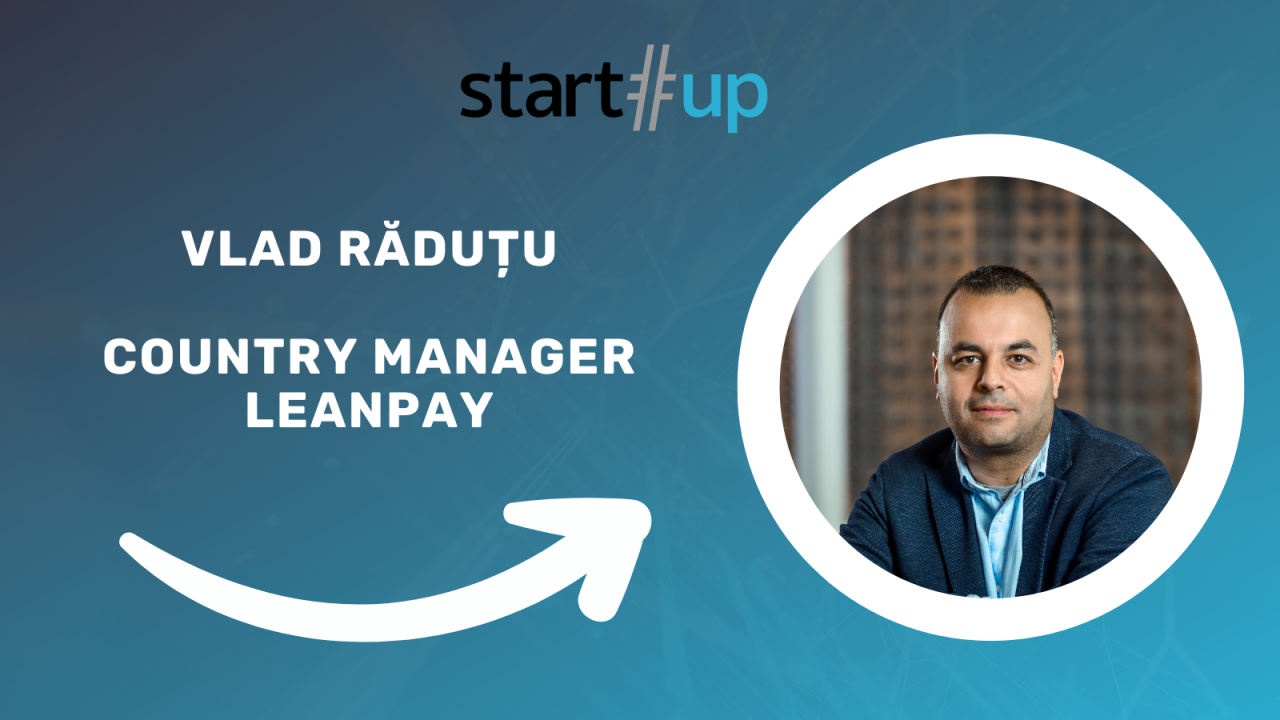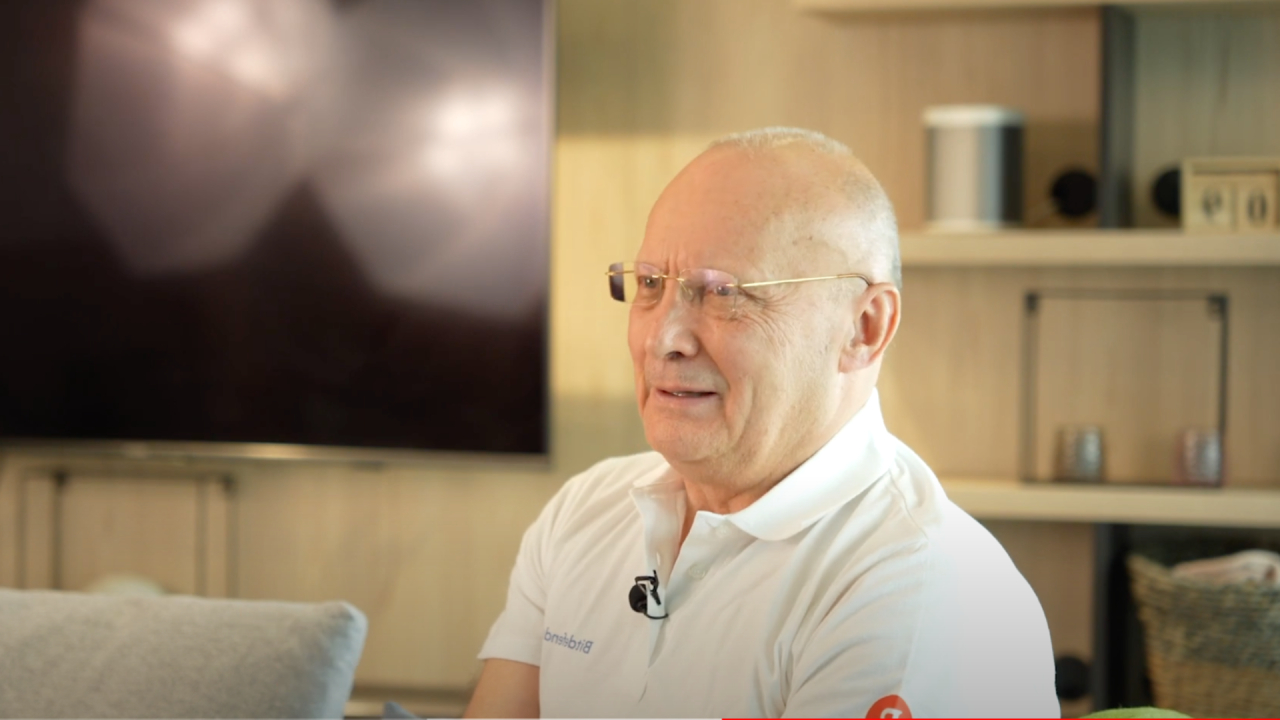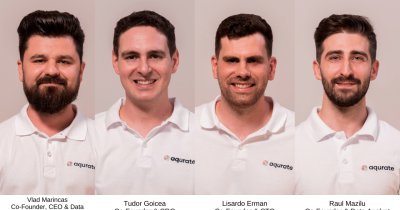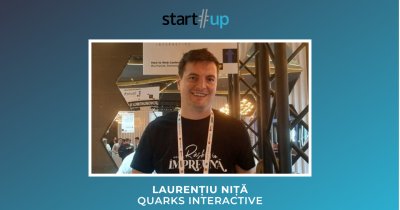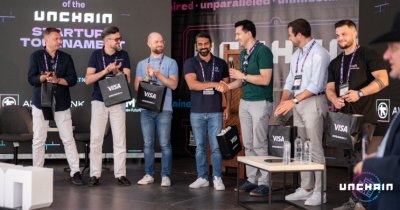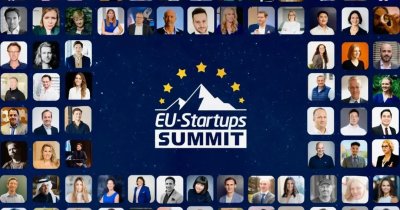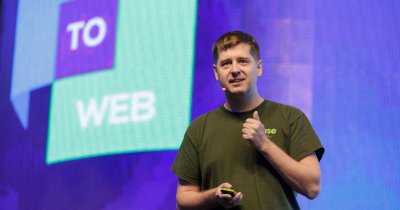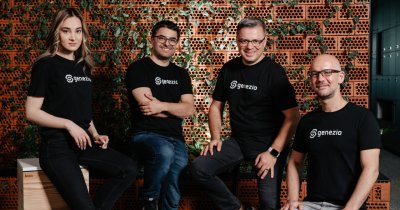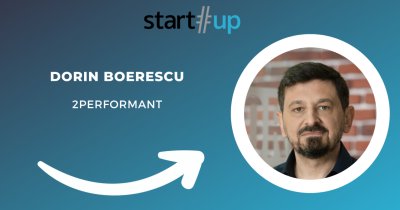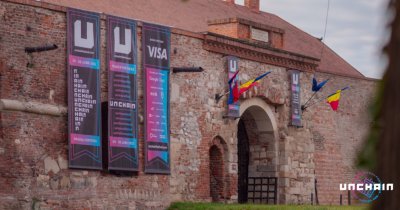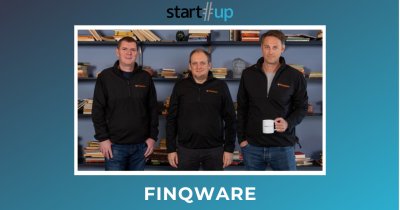We talked with the Romanian researcher about his career as a quantum researcher, Quantum Odyssey and his entrepreneurial road.
When did your passion for quantum physics, and then research, started?
I have had a keen interest in physics and mathematics since I was a kid and with the advent of the internet, a simple “Yahoo Search” (before we had Google) on the keyword quantum was all it took to get me excited. Quantum physics and the equations that describe particle behavior have not changed much for the past 100 years, since the days of Max Planck, followed by the works of Schrodinger, Einstein and Dirac that matured the field. I find deep studying quantum to be the most fascinating, mind opening and humbling experience that can be had: you dive in the nature of reality, realize you can actually calculate how it all emerged, to then discover the immense computational power small particles can offer if we become capable to just separate a few from the rest and configure them in ways that their natural behavior is harnessed to solve real world problems, or problems we humans believe important. Such separated, fine controlled particles are what make quantum computers today, and I am certain that tapping into this technology is the master key for humanity to raise on the Kardashev scale.
I now focus solely on quantum tech and wrote my first research paper in 2019, to soon realize that quantum computing has a crippling social bottleneck in the number of people who understand it, which got me to now focus on quantum computing education. My attempt to solve this problem was to coin quantum literacy, build Quantum Odyssey – the world’s first completely rigorous, no math/ no code learning platform for quantum computing, start the first quantum software company in Romania (Quarks Interactive S.R.L.) and continue applied research on tools and methods so that high schools and universities worldwide are able to teach quantum computing in an inclusive way. With Quantum Odyssey, mathematics is no longer a barrier of entry to learn quantum since we discovered a completely visual method that faithfully represents the underlying mathematics. Now it is possible to learn and write quantum code/ math by simply engaging with visual, puzzle like elements.
If we were to compare the quantum world to a moment in the past, from a technology point of a view, which would be the right comparison?
The level of technological progress we unlocked with the advent of applied quantum mechanics surpasses even the invention of the steam engine. It is unprecedented in our history and it is well known that today we live in a new industrial revolution. This industrial revolution is what makes the modern world possible. When it comes to quantum computing, think that we always had at best, educated guesses when it came to making decisions, discovering new patterns in the information we have. Progress in porting real world problems to quantum computers can go as far as removing the need of doing educated guessing. This is particularly important for the fields of human endeavor that are plagued by Big Data. Problems that take thousands of years to solve can today already be solved in minutes on quantum tech. Those who learn quantum computing the following years will be the ones that will move technological progress forward by achieving unfathomable breakthroughs.
What are the challenges of being a researcher in the field of quantum computing?
When it comes to actual quantum tech we are well on our way to achieve quantum supremacy in terms of processing power. IBM’s Roadmap marks 2025 as the most likely year when the technology will be matured enough for this to be achieved, and this is just one of the many tech giants working on it. The biggest challenges that still need solving lie in how many people know quantum computing and are also experts in various domains of interest where quantum can be applied to. Today we have a crippling skill shortage bottleneck in the field of quantum algorithm design. IBM is a key partner of mine and Quantum Odyssey is highly endorsed by IBM. I also discussed how Romania can address this skill shortage and I also presented with Cristian Presura how people can go about learning quantum today and why it is important.
We know today how a normal computer works, even a supercomputer. How is a quantum computer different?
I find that most online sources do a bad job at explaining the difference between classical and quantum computing. This has always frustrated me and has been the main motivator to create Quantum Odyssey. After the years of research I put into education I now fundamentally understand why. The difference between classical, transistor-based computation and quantum is that classical has been designed on and has ever since followed Boolean algebra, whilst quantum computing follows Linear Algebra. Boolean is the same logic that is the building block of all modern languages (e.g. English) humans use and modern computers are nothing more than super-fast Boolean logic sentence making machines. Thus, it is impossible to describe quantum computing and its underlying phenomena using common languages and every such attempt at describing it will make it sound counterintuitive and lacking common sense.
As an exercise to show the point I want to make, I ask the reader to try to describe the logic (algorithm of steps that need to be taken) for solving this problem:
There are four shuffled (unsorted, unordered) hidden cards, one of which is an Ace. I want to always pick the Ace in a single draw, for each time the deck is shuffled. What are the steps to achieve this?
**We see that no matter how much we struggle, no set of logical steps can be expressed that would allow the retrieval of the Ace from the shuffled cards with 100% probability in a single try. Just the idea of being able to achieve this sounds like magic to us. This is because, thought processes that are available only to those who are familiar with Linear Algebra logic can be used to solve these type of problems, and expressing these type of solutions in formal language (that use Boolean logic solely) I naively argue is impossible. The key quantum phenomena that make computing powerful: entanglement, quantum phase and superposition cannot arguably be correctly expressed using modern language solely using Boolean logic. The phenomena quantum interference is what gives quantum computers their power, make them perfect Turing machines and are our ticket out of solving the most difficult of problems. If you are interested to understand for instance the difference on how we understand probability using Boolean logic and the differences to quantum, check this video we made using Quantum Odyssey.
Quarks Interactive developed Quantum Odyssey to write code for a quantum computer – how does it work and how can this the gamified platform be used on a larger scale?
Quantum Odyssey(QO) is world’s first complete no code, full Hilbert space visualizer of every logic possible on a universal quantum computer. By learning the visuals in QO, the user can then use these to communicate quantum algorithms to other users or directly push code to quantum computers. Thus, QO bridges the barrier between Linear and Boolean algebra, making it possible to talk about and discuss quantum computing in a rigorous manner using common language by making references to the visuals in QO. So far when it comes to computer code, we are fully compatible with IBM’s Qiskit and openQASM programming languages, meaning that anything created in QO can be ran directly on IBM quantum hardware and at a press of a button show the full code. At the time of writing this, QO also offers more functionality to design quantum algorithms than what’s typically available from quantum hardware vendors and we only can hope that the vendors will implement the functions we came up with. QO is based on an invention by Laurentiu Nita and the underlying mathematical methods and systems are patented in the USA. We plan to continue developing QO and integrate all quantum hardware and all coding languages from all tech giants worldwide. Besides these purely technical aspects, QO is the product of many years of educationalist research and now uses ingenious learning methods, based on active constructivism to offer to the user a state-of-the-art learning experience. We made this video to stimulate people to pickup QO and learn quantum. Being a fully gamified, learning platform, users also compete against each other to achieve higher ranking and we have plans to reward top performing users. On the long term, we are now doing research to understand how the amazing algorithms discovered in QO by users could potentially be used to build an AI assistant tool that can automatically translate real world problems expressed in mathematical form to quantum algorithms directly.
You do not need to know anything about mathematics or computers to learn quantum computing using QO, we touch all these aspects from scratch and make learning fun and rewarding. We hope to see QO used by every learning institution worldwide, and so far things are going great. We are part of a consortium that were recently rewarded 17M$ by European Union to design quantum computing curricula to Europe
How much different is it to write code for a quantum computer? At the same time, how much do you have to relearn or unlearn as a specialist in this field?
I can shamelessly (and proudly) say that all it takes to get accustomed to quantum computing is to download and spend the time needed to finish QO. Go in blind, don’t study anything else before you do it and don’t be afraid if you are not good with mathematics or coding. It is just a completely different way of structuring logic, as I said, based on Linear Algebra, that requires a bit of extra knowledge and a deviation from the standard programming methodologies to be able to program quantum computers. This becomes apparent once you experience QO, difficult to explain in words for the reasons aforementioned. Every human learns in their own way and at their own pace and we took this in mind when designing the platform.
You were the first independent software developers connected to a quantum computer. How did you achieve this performance? And talking about the field of quantum computing, is it dominated by the big tech giants, or do you see it like in the the first days of the Internet, with everybody being more focused on the research part?
We achieved this only thanks to the brilliant minds at IBM Quantum that are building universal quantum hardware. They were the ones that found us out, were impressed by the rigor of our work and asked us to connect their hardware to our software and continue to help us ever since, for instance by promoting it.
Comparing the advent of quantum computing to the internet is brilliant; from our point of view, internet is a tool for mankind: it allows for cross-collaboration and speeds up real-world problem solving by increasing access to powerful, easily shared thoughts for those who look for it. The same applies for quantum computing, once someone masters this new tool, it will gain access to powerful knowledge and collaboration opportunities. Learning quantum logic can be argued to be similarly powerful to connecting to the internet. The humans who do so will be able to think thoughts unthoughtable before and there is no better time to start than in its infancy. For us at Quarks Interactive, speeding up early adoption is critical. We strongly believe in “If you want to teach people a new way of thinking, don't bother trying to teach them. Instead, give them a tool, the use of which will lead to new ways of thinking.” Richard Buckminster Fuller
How difficult is it for investors or for other partners that may or may not have a technical background, to understand what you do? How would you translate quyantum computing for the general public?
Relatively easy, given that until recently our investor talks, and collaboration opportunities happened just around Quantum Odyssey, our flagship product. The need for this software to exist is simple to explain: It reduces the time it takes to learn “correct” quantum computing to a couple of days from what could be years of study and misunderstandings. Plus, it’s a video game! It’s fun to play, we have great reviews. We are preparing to publish it on Steam as well once we are happy with the gamification elements. When it comes to educational institutions, we are highly impressed by the work done by those behind Magurele Summer School, this year being the 2nd year in which they use Quantum Odyssey to teach students quantum computing and Romanian universities that already started using QO in teaching. We haven’t done any marketing for our software, so far, we focused simply on making it the best user experience possible for someone interested in quantum. In the USA, our idea of quantum literacy has kicked off and now Quantumliteracy.com exists and American Physical Society asked us to design a board gamebased on QO that is today distributed to over 10.000 classrooms in the USA. Now we are about to start a EU sponsored project with over 24 universities and starting 2023 we will see QO in most of the top universities in the EU.
What will be difficult to explain is what comes next. We plan to bring AI to quantum algorithm design and for this we are looking for Seed funding.
What are the challenges for such a project to evolve from a research phase into a business case?
As every other business, it comes down to execution with the caveat that a brilliant idea can turn out to not be so brilliant down the developmental road, when it comes to applied theoretical work. We were lucky enough that it was not the case for Quantum odyssey. We had brilliant minds helping us out from all sectors I could think of: from Romanian government and their grant scheme SmartUp Diaspora that made it possible to build a prototype when nobody else believed it is possible, to then meeting brilliant angel investors at TechAngels and Growceanu, I only had to pitch the prototype once to secure a budget to continue development. Academics were more than happy to collaborate on this project.
Perhaps not many research projects are not so lucky. The only other thing I can think of is that usually research is done for the sole purpose of research, without a business goal in mind. And this is fine, for instance the purpose of the internet was not to make money out of it (and how glad we are today that the internet is free). This was not the case for us, our goal was to build a sustainable, steady growing company that can place Romania on the map when it comes to where quantum software is developed around the world and not have to solely rely on grants to continue development. All our research is done for the sole purpose of building tools that we are convinced they can have a concrete impact and are desired by others and make sure we spend our investor money wisely. When and if we will do again pure theoretical research with unclear marketable goals, we first write a grant application for it and only commence if the grant is approved, for instance we did feasibility studies for QO using a UK grant that resulted in open access work.
Tell me more about the the team behind Quarks Interactive – what are your main skills and strenghts?
QI is a very small, yet very ambitious and knowledgeable team that contracts or expands depending on the current workload. The people working strictly on QO have been there since its inception (4 years ago). We are quantum physicists, educationalists, game developers and artists. We plan to expand the team with AI researchers and more business centric folks now as we prepare for raising Seed funding.
You raised 115.000 EUR through Seedblink this year. What are your objectives for 2023?
We actually launched and successfully closed our crowdfunding campaign on Seedlink in 2020. Luckily we did not need investment for the past now 2 years, since we were a profitable company in 2021 thanks to some great contracts with tech giants.
What are the results of Quantum Odyssey at this point in time?
QO is surely, slowly making a change when it comes to accessibility and inclusiveness of learning quantum computing. It brings powerful knowledge in the hands of those who cannot afford expensive university level education, at very least. We also positioned the price at 10$ to make it affordable to everyone and give it for free to charity events to promote our goal of quantum literacy. As I mentioned, thus far we did not focus on marketing the software since we still have ways to go before making it complete. Key profits come from tech giant collaborations and contracts with higher learning institutions. We are happy that last year we spent a bit less money than we made, given we still have so much development ahead planned before we are happy with a mainstream public release.
Besides developing the online game which is used by people who want to understand quantum computing better, what other kind of content do you want to develop, which are your plans for the product?
The second phase of our company will focus on bringing AI to quantum algorithm design. The database that slowly is building up out of the algorithms discovered by players will help us train AI solutions that can speed up real world problem translations to quantum algorithms. We hope to become a key player for algorithm design for agnostic quantum hardware (any algorithm developed using our tools to be compatible to any quantum hardware around the world and the development time to make the actual algorithm to be unbeatable by competitors), as a comparison what google is to internet today.
How far away are we from a quantic operating system?
I argue that Quantum Odyssey is already an operating system for universal quantum computers at their current stage, if an OS by definition is a UI that allows ease of use when it comes to more complex applications and brings forward some form of standardization on how the applications are to be built to remain compatible. Quantum gatesdon’t have to be simple, in fact you can store an entire algorithm (application) in a single, custom quantum gate (a UI block piece in QO) and this allows the creation of complex problem-solving algorithms that use multiple such custom gates, a similar relationship as to classical OS and standard applications. As hopefully we will keep getting funded, QO can only grow to accommodate more qubits and make it more efficient in how it works, by continually discovering better methods, hopefully keeping pace with the growth of quantum hardware. I am confident in saying that quantum computers will not replace classical computers in the next 50 years, given there are functions (like addition!) for which quantum computers will not bring any advantage. Quantum computers efficiently solve the type of problems called BQP; for instance, problems of the type of finding the minimum of a large matrix. So yes, Quantum Odyssey is by definition an operating system that is currently as good as the existing hardware, and we can only hope to keep pace.
How could the quantum technology be applied in different fields, industries?
This is a field of continuous discovery. What we know is that nature is quantum, and some argue that all emerging propriety of quantum particles: the workings of an atom, the emerging chemistry, biology, to then human endeavors like finance and so on are all emerging. To generalize on this idea, there is a concept called the Eddington number, that puts the number of protons in our universe to about . If technological progress in quantum computing continues as it is today, just looking at the IBM roadmap we might have a quantum computer that can compute on bit sizes that surpasses this number by year 2024. Of course, problems concerning noise in these computers remain to be solved (algorithms designed will not work as intended until QEC breakthroughs start to arise), which puts a question mark over on if we would ever be able to simulate an entire universe with its emerging life and all there is to it until there is a solid theoretical framework either way. This just goes to show how deep the rabbit hole is on what quantum computing can do.
How would you explain quantum computing to someone who doesn’t know anything about technology? Which would be the most funny way to explain it?
I’d say if you like deep relaxing music, awesome British accents and seeing things go boom, balls, and lasers there is a puzzle game for you called Quantum Odyssey. After you are done, we can sit and talk like two quantum computing knowledgeable enthusiasts.
Are you looking to raise a new round of investment in the following months?
Yes, we are looking to raise 2M$ in the following months, our first Seed funding. After four years on research and almost finishing Quantum Odyssey, we are certain now that we know what needs to be done and how we will put the money to good use to build strong, commercially viable tools. We are traveling to Singapore to meet with our business partners there and expand.
You have joined the InnovX-BCR accelerator. Why did you enter the accelerator and what have you learned from it?
We were invited to apply and could not resist given the caliber of the business education that InnovX provides. I think it’s the best accelerator in Romania. We learned what we needed about setting in place a solid framework for growing our business and how to prepare for this Seed round.
Which were the most valuable feedbacks you got while participanting in the accelerator?
It wasn’t as much the feedback as it was the educational materials and the smart tools we were introduced (that we didn’t even knew we want). Given the nature of our business, it was difficult to obtain direct feedback, but it did bring us a generalist view over how to set up our business on solid foundations for growth.
How difficult is for you to pitch in front of the investors, being sometimes the smartest guy in the room when talking about your subject of expertise?
I always hated and ran away when I felt like “the smartest man in the room”. I think for personal growth, one needs a daily dose of imposter syndrome. I never felt smart when pitching and learning about business, since all the people I met were experts in their field! I was not there to teach quantum computing, I was simply a learner on how to grow a powerful, long-lasting business. I thank everyone that gave me the opportunity to learn. When it came to pitching, our company now is at the stage in which we need to pitch towards deeptech VCs that have quantum physicists in their team able to analyze our invention. Romanian VCs today do not seem to have the deeptech supporting structure needed for us, but I am confident they will in the future. Some of our angels from Romania were keen to invest again in us and we are now preparing to bring our work to a more international market.
Where do you see the world of quantum computing in 2050?
This question makes me wonder, how do we see the world in 2050, if quantum tech continues to grow at its current pace? Given what we know quantum computing can do for us and if our company succeeds, it’s very possible that whatever I say now will be very far from the truth. An application of quantum computing I stood away from mentioning until now is Quantum AI. I strongly believe that the first general purpose and by some definition sentient AI will run on a quantum computer. Moore’s law is nearing its end and unless P=NP this situation will simply, physically prohibit us from building a true AI as powerful as seen in science fiction. I can only hope that ethics and regulations will be in place and the use of this powerful technology will be for the betterment of mankind and immortalize our place in the Universe.
We made Quantum Odyssey so that we get people from all walks of life eager to learn quantum, to then see real world applications on quantum computers during our lifetimes. We strongly believe that if complete knowledge is widespread, amazing, unforeseeable tech is built, on strong moral grounds.
 Vlad Andriescu
Vlad Andriescu